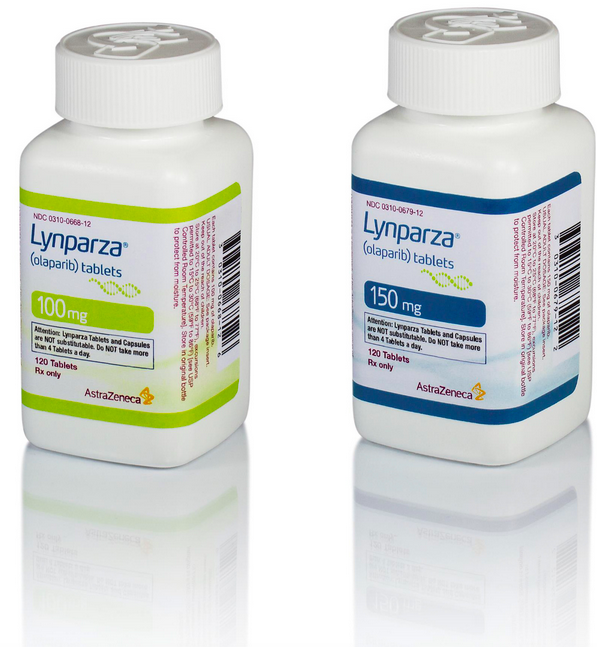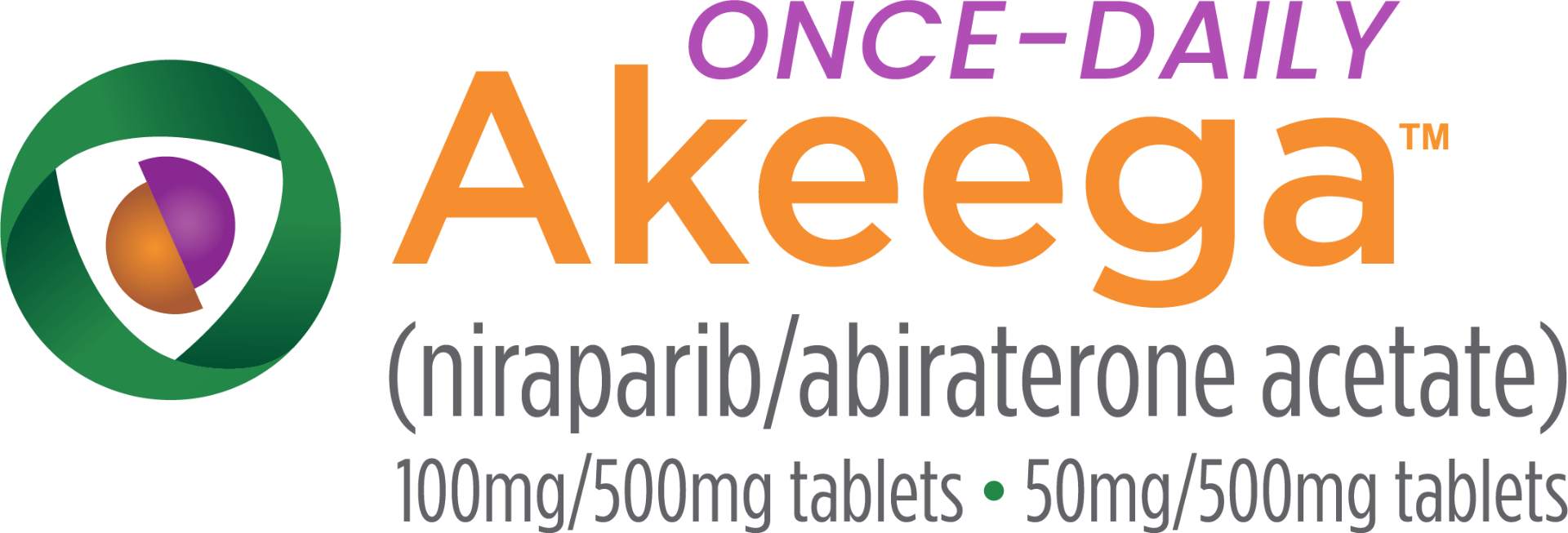Lynparza (olaparib) vs Akeega (niraparib and abiraterone acetate)
Lynparza (olaparib) vs Akeega (niraparib and abiraterone acetate)
Lynparza (olaparib) is a PARP inhibitor used primarily for the treatment of certain types of ovarian, breast, pancreatic, and prostate cancers, particularly in patients with specific genetic mutations, such as BRCA. Akeega combines niraparib, another PARP inhibitor, with abiraterone acetate, which is used to lower androgen levels and treat prostate cancer. When deciding between the two, it is crucial to consider the specific cancer type, genetic background, hormone sensitivity, and the individual's overall health profile, as these factors can influence the effectiveness and suitability of each medication.
Difference between Lynparza and Akeega
| Metric | Lynparza (olaparib) | Akeega (niraparib and abiraterone acetate) |
|---|---|---|
| Generic name | Olaparib | Niraparib and Abiraterone Acetate |
| Indications | Ovarian cancer, breast cancer, pancreatic cancer, prostate cancer | Prostate cancer |
| Mechanism of action | PARP inhibitor | Niraparib: PARP inhibitor, Abiraterone: CYP17 inhibitor |
| Brand names | Lynparza | Akeega |
| Administrative route | Oral | Oral |
| Side effects | Anemia, nausea, fatigue, vomiting, respiratory infections | Hypertension, hypokalemia, edema, fatigue, joint swelling or discomfort |
| Contraindications | Hypersensitivity to olaparib, pregnancy, breastfeeding | Hypersensitivity to niraparib or abiraterone, pregnancy, severe hepatic impairment |
| Drug class | Poly (ADP-ribose) polymerase (PARP) inhibitor | Niraparib: PARP inhibitor, Abiraterone: Androgen biosynthesis inhibitor |
| Manufacturer | AstraZeneca | Not widely established; combination therapy |
Efficacy
Lynparza (Olaparib) Efficacy in Prostate Cancer
Lynparza, the brand name for olaparib, is a PARP inhibitor that has shown efficacy in treating prostate cancer, particularly in patients with mutations in DNA repair genes such as BRCA1/2. In clinical trials, olaparib has been evaluated for its effectiveness in patients with metastatic castration-resistant prostate cancer (mCRPC) who have progressed following prior treatment with new hormonal agent therapies. The efficacy of Lynparza in this patient population has been demonstrated in terms of radiographic progression-free survival (rPFS) and overall survival (OS) benefits. The drug has been particularly effective in patients whose tumors have homologous recombination repair (HRR) gene mutations, providing a targeted therapeutic option for this subset of prostate cancer patients.
Akeega (Niraparib and Abiraterone Acetate) Efficacy in Prostate Cancer
Akeega is a combination of niraparib, a PARP inhibitor, and abiraterone acetate, a CYP17 inhibitor used in the treatment of prostate cancer. While clinical data on the efficacy of this specific combination may be limited, the individual components have been studied extensively. Niraparib has shown promise in the treatment of mCRPC, especially in patients with HRR gene mutations similar to olaparib. Abiraterone acetate, on the other hand, is well-established in the treatment of mCRPC and works by decreasing the production of androgens that can stimulate the growth of prostate cancer cells.
When considering the combination of niraparib and abiraterone acetate, the rationale is to target prostate cancer through multiple mechanisms of action. The synergy between a PARP inhibitor and a hormonal agent like abiraterone could potentially enhance the efficacy in suppressing tumor growth and improving survival outcomes. However, the efficacy of Akeega specifically in prostate cancer would need to be supported by robust clinical trial data demonstrating significant improvements in patient outcomes such as rPFS and OS.
It is important to note that while Lynparza and Akeega have shown efficacy in prostate cancer, their use may be contingent upon specific genetic profiles of the tumor or previous lines of therapy. Therefore, the selection of patients for these treatments should be guided by biomarker testing and in accordance with the latest clinical guidelines and evidence. As with any medication, the efficacy of these drugs must be weighed against their potential side effects, and their use should be personalized to the individual patient's condition and medical history.
Regulatory Agency Approvals
Lynparza
-
European Medical Agency (EMA), European Union

-
Food and Drug Administration (FDA), USA

-
Health Canada

-
Therapeutic Goods Administration (TGA), Australia

-
Medsafe (NZ)

Akeega
-
European Medical Agency (EMA), European Union

-
Food and Drug Administration (FDA), USA

Access Lynparza or Akeega today
If Lynparza or Akeega are not approved or available in your country (e.g. due to supply issues), you can access them via Everyone.org.
How it works

Make an enquiry
Choose the medicine you want to buy, answer a couple of questions, and upload your prescription to speed things up. We’ll get back to you within 24 hours.


Make an enquiry
Choose the medicine you want to buy, answer a couple of questions, and upload your prescription to speed things up. We’ll get back to you within 24 hours.


Breeze through the paperwork
We'll guide you through the required documents for importing unapproved medicine, ensuring you have all the necessary information.


Get a personalized quote
We’ll prepare a quote for you, including medicine costs and any shipping, administrative, or import fees that may apply.


Receive your medicine
Accept the quote and we’ll handle the rest - sourcing and safely delivering your medicine.

Some text on this page has been automatically generated. Speak to your physician before you start a new treatment or medication.
Let's talk
If you have any questions, call us or send us a message through WhatsApp or email:
Contact us




